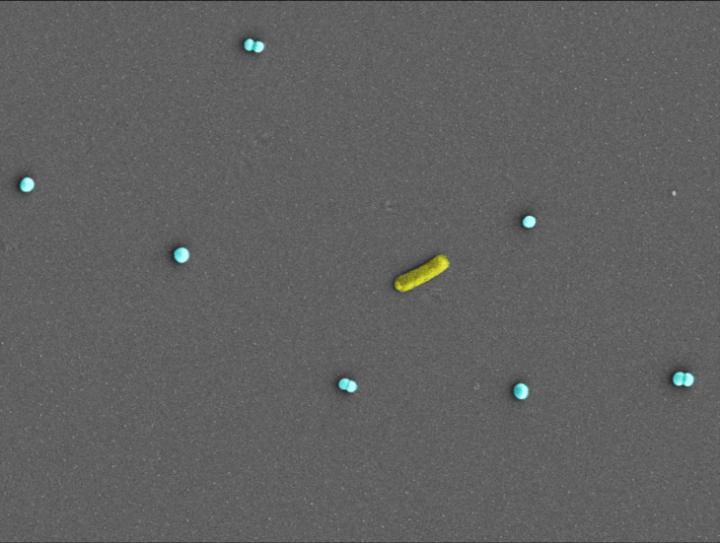A National Institutes of Health grant will fund a precise and quick test to help treat one of the largest causes of death due to infection in the United States

Credit: Pak Kin Wong, Penn State
One in three people who die in U.S. hospitals have sepsis, the body’s extreme response to infection that can lead to multiple organ failure. Diagnosis can take up to five days, but death may take only hours from the initial onset of sepsis.
Now, a Penn State and Stanford University partnership aims to change that with a five-year, $3.8 million grant from the National Institutes of Health.
“This project will develop a rapid diagnostic system for sepsis, one of the most common causes of death due to infections,” said Pak Kin Wong, co-principal investigator and professor of biomedical engineering and mechanical engineering at Penn State.
With one blood test, Wong and co-principal investigator Samuel Yang, an associate professor of emergency medicine at Stanford University School of Medicine, plan to not only classify the pathogen causing infection but also pinpoint how resistant the pathogen is to antibiotics.
Current sepsis diagnostic techniques require several days to allow the bacteria or fungi in the blood sample to multiply enough to be accurately identified. Only when the pathogen is identified can clinicians precisely treat the infection, according to Wong.
“This blood culture step typically requires two to five days, which makes sepsis diagnostics unacceptably slow,” Wong said. “Our approach bypasses this step and identifies fungal and bacterial pathogens at the single-cell level.”
Based on a biosensing strategy developed in Wong’s laboratory, the researchers will capture and sort individual pathogens based on their size and begin identifying by delivering molecular probes into the bacteria and testing susceptibility to antibiotics by monitoring changes in bacterial morphology and metabolism — in just two hours. This method facilitates the identification of each bacterium in the sample and determines their resistance to antibiotics. Wong and his team at Penn State, with their clinical collaborators at Stanford, will further develop this into a diagnostic system for sepsis and evaluate the system’s performance and accuracy.
“The single-cell technology is particularly crucial for sepsis, which has a very low pathogen load compared to other types of infection,” Wong said. “By counting the bacteria one at a time, our technique will also quantify the pathogen and detect polymicrobial infection, when the disease is caused by more than one pathogen.”
According to Wong, infection is the leading cause of morbidity and mortality from infants to the elderly, and it accounts for more than $20 billion in health care costs in the United States every year.
“The COVID-19 pandemic has underscored the importance of rapid diagnostics in our fight against emerging or existing infectious diseases to improve patient outcomes and reduce pathogen spread,” Yang said.
The emergence and evolution of pathogens is particularly troubling when it comes to identifying and treating infection, according to the researchers.
“Pathogens responsible for many of the common infectious diseases, such as sepsis, pneumonia, urinary tract infections and wound infections, have proven to be highly adept in acquiring mechanisms of antimicrobial resistance,” Wong said.
Wong explained that by using a tool to precisely and quickly identify a pathogen and the antibiotic with which to treat it, clinicians may not need to rely so heavily on broad-spectrum antibiotics that can lead to the rise of resistant pathogens.
“The emergence of multidrug-resistant infections is a major global health threat,” Wong said. “The need for new antibiotics has far outpaced the development of new classes of antibiotics. If we don’t act quickly, we may run out of useful drugs to treat infections.”
###
Media Contact
A’ndrea Elyse Messer
[email protected]




